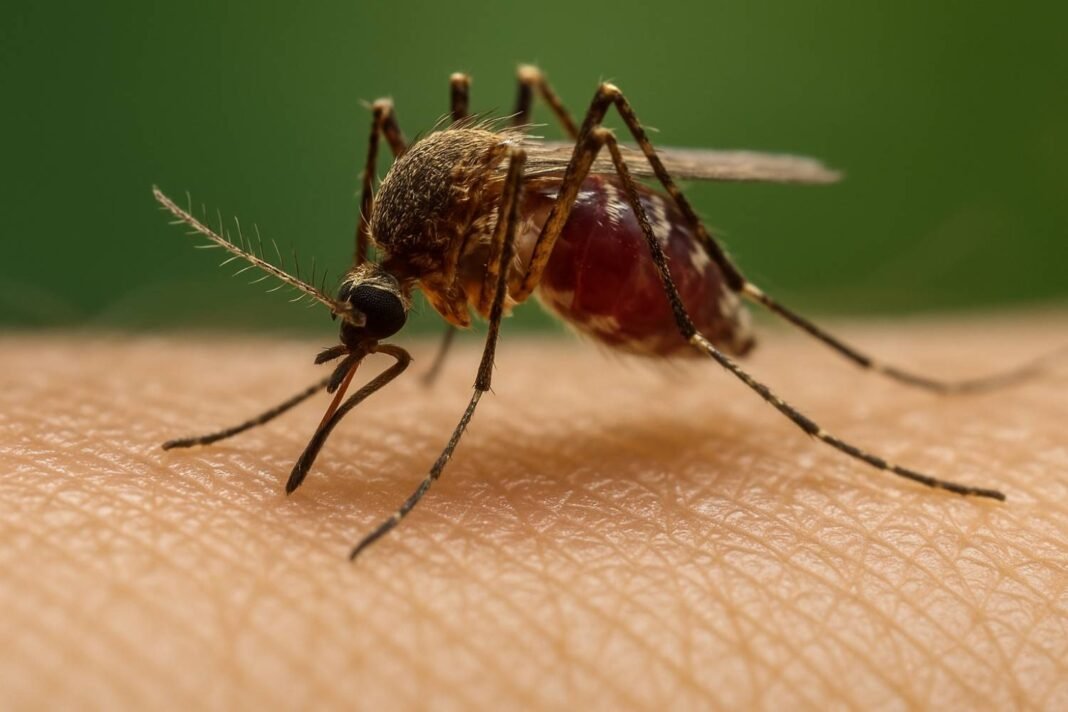Delhi Sees Sharp Rise in Vector-Borne Diseases, Malaria at Decade High
Delhi is witnessing a concerning uptick in mosquito-borne diseases, with malaria cases reaching the highest levels in a decade and dengue infections also climbing sharply. According to the latest data from the Municipal Corporation of Delhi (MCD), 124 malaria cases have been reported this year so far — the highest tally for the corresponding period in ten years. Meanwhile, dengue cases stood at 277 as of July 28, the second-highest figure for the same timeframe in the last five years.
Experts and officials attribute this surge to an unusually wet monsoon season this year. Delhi received 259.3 mm of rainfall in July, surpassing the normal monthly average of 209.7 mm. This has led to widespread waterlogging, creating ideal breeding grounds for mosquitoes and driving the increase in disease transmission.
Surge in Breeding Sites Raises Alarm
The MCD’s latest weekly report also highlighted a sharp rise in mosquito breeding grounds. Over 9,100 new sites containing mosquito larvae were detected in just the last seven days, adding to the total of 89,030 identified breeding sites between January and July. This significant jump—over 10% in just one week—has intensified concerns among health officials about a potential outbreak if preventive measures are not strictly enforced.
While the weekly count of new malaria and dengue cases remains relatively low, the upward trend has prompted civic authorities to ramp up surveillance and preparedness. Between July 21 and July 28, 12 new malaria cases and 16 dengue infections were recorded in the city.
Dengue Trends and Zone-wise Distribution
A year-on-year comparison shows a substantial increase in dengue cases. As of July 28 this year, 284 cases had been reported compared to 116 in 2023, 57 in 2022, and just 29 in 2021. The central part of Delhi has emerged as a hotspot, with the Central zone reporting the highest number of dengue cases (38). This is followed by the West zone (30), Civil Lines (29), and Rohini, Shahdara, and South zones, each with 26 cases.
Dengue is caused by the Aedes aegypti mosquito, which thrives in stagnant, clean water. The virus typically leads to symptoms such as high fever, body aches, nausea, rashes, and headaches. Although most cases resolve within two weeks, severe infections can result in haemorrhagic fever, potentially leading to fatal internal bleeding.
Hospitals Directed to Prepare for Rise in Cases
To manage the rising burden, the MCD has directed hospitals to prepare emergency facilities and reserve beds for mosquito-borne illnesses. Three major civic hospitals — Hindu Rao, Swami Dayanand, and Kasturba — have been designated as Sentinel Surveillance Hospitals for treating such cases.
According to MCD Standing Committee Chairperson Satya Sharma, 70 beds have been reserved at Hindu Rao Hospital, 22 at Swami Dayanand Hospital, and 75 at Kasturba Hospital. “All hospitals have already been directed to remain fully prepared for any emergency,” Sharma said in a statement, adding that additional staffing and medical supplies are being ensured.
Better Reporting and Monitoring Cited
Civic officials have also acknowledged that the rising numbers partly reflect improved case detection and reporting systems across government and private hospitals. “There’s a more robust data collection process in place this year, which means more accurate reporting,” said one senior MCD official.
Despite the increase in cases, health authorities stress that Delhi is not yet facing an outbreak. However, the MCD is not taking any chances. Routine fogging drives, awareness campaigns, and door-to-door inspections for mosquito breeding have been intensified across the city. Residents are also being urged to eliminate stagnant water from coolers, flower pots, and other containers around their homes.
As the monsoon continues, health officials warn that vigilance and cooperation from the public will be crucial in preventing further spread of vector-borne diseases in the capital.








